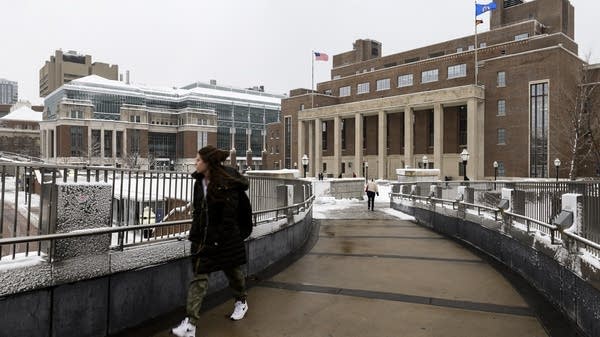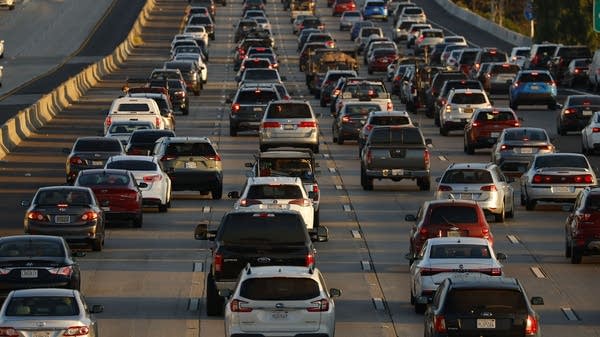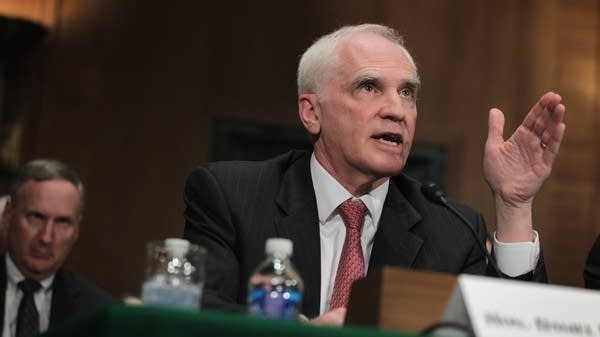The economy Trump inherited versus the economy we have now
“Trump inherited an economy that was firing on most, but not all, cylinders,” said Ryan Sweet at Oxford Economics.

Presidents are often blamed when the economy flounders and lauded when it does well — even though they usually have little to do with either.
Trump 2.0 has been different, as this administration’s actions have had a direct and historic economic impact. The nation’s economic trajectory has dramatically changed in Donald Trump’s first 100 days in office.
On Jan. 20 of this year, the U.S. economy was on solid footing.
“Trump inherited an economy that was firing on most, but not all, cylinders,” said Ryan Sweet, chief U.S. economist at Oxford Economics.
The outlook has changed dramatically a hundred days in. “In any given year, the probability of a recession is around 15,” he said. “Now, it's essentially a flip of the coin whether or not we have a recession this year.”
Sweet points to two culprits: tariffs and the uncertainty surrounding them.
Small businesses, in particular, have raised alarms, and a few have sued the Trump administration.
Still, the hard data shows that, for now, “the economy continues to do fairly well,” noted Jay Bryson, chief economist at Wells Fargo. That’s because consumers — who power the U.S. economy — have been trying to get ahead of tariffs.
“If you think tariffs are going to go into effect, if you think the prices of things that you're going to buy are going to be higher in a few months than they are now, you have a real incentive to go out there and buy them today,” he said.
Retailers planned ahead too. Judah Levine of the global freight booking platform Freightos said that volumes from China and elsewhere to the U.S. skyrocketed in March.
“So, because a lot of importers have brought in a lot of goods ahead of time, so they're going to rely on the inventory surplus for now and basically wait as long as they can before they have to restock,” he said.
The actions so far from importers and consumers mean there is a lag time between when tariffs are imposed and their effects clearly showing up in the real economy.
Looking ahead, Jay Bryson of Wells Fargo will be paying close attention to jobless claims data for signs that the tariffs could be pushing the economy into recession.
“The labor market is a very coincident indicator of what's going on in the economy,” he said. “If the labor market is holding up pretty well, then the economy is holding up pretty well.”
Some damage is already done, though. The International Monetary Fund updated its outlook, now expecting a half-a-percentage point drop this year in global economic growth. Growth in the U.S. is expected to shrink, as well.
“A year ago, we were talking about ‘When is that soft landing happening?’” said David Bieri, associate professor of public policy at Virginia Tech.
A soft landing is the concept of lowering inflation while keeping the labor market healthy. “One thing that we can say for sure that we are not in the period of looking for a soft landing in the next six to 12 months,” said Bieri.
The rest, he added, is harder to predict because of the magnitude of the shake-up of the global economic order that President Donald Trump has imposed in his first 100 days in office.
“Because it is so unprecedented, and the government is at the source of most of the uncertainty, and there is no way that we can protect ourselves from that,” Bieri said.
Bieri takes comfort in one precedent, though: COVID, he said, proved the U.S. economy is very resilient and, over time, can withstand strong shocks.













